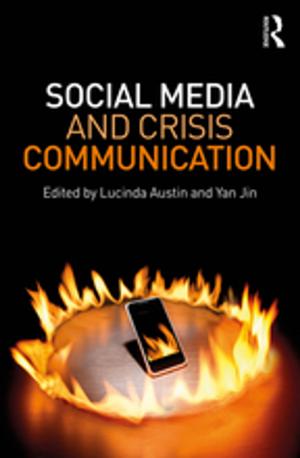The Politics of Cyberconflict
Nonfiction, Social & Cultural Studies, Political Science, International, International Relations| Author: | Athina Karatzogianni | ISBN: | 9781134154241 |
| Publisher: | Taylor and Francis | Publication: | September 27, 2006 |
| Imprint: | Routledge | Language: | English |
| Author: | Athina Karatzogianni |
| ISBN: | 9781134154241 |
| Publisher: | Taylor and Francis |
| Publication: | September 27, 2006 |
| Imprint: | Routledge |
| Language: | English |
The Politics of Cyberconflict focuses on the implications that the phenomenon of cyberconflict (conflict in computer mediated enivironments and the internet) has on politics, society and culture.
Athina Karatzogianni proposes a new framework for analyzing this new phenomenon, which distinguishes between two types of cyberconflict, ethnoreligious and sociopolitical, and uses theories of conflict, social movement and the media.
A comprehensive survey of content, opinion and theory in several connected fields, relating not only to information warfare and cyberconflict, but also social movements and ethnoreligious movements is included. Hacking between ethnoreligious groups, and the use of the internet in events in China, the Israel-Palestine conflict, India-Pakistan conflict, as well as the antiglobalization and antiwar movements and the 2003 Iraq War are covered in detail.
This is essential reading for all students of new technology, politics, sociology and conflict studies.
The Politics of Cyberconflict focuses on the implications that the phenomenon of cyberconflict (conflict in computer mediated enivironments and the internet) has on politics, society and culture.
Athina Karatzogianni proposes a new framework for analyzing this new phenomenon, which distinguishes between two types of cyberconflict, ethnoreligious and sociopolitical, and uses theories of conflict, social movement and the media.
A comprehensive survey of content, opinion and theory in several connected fields, relating not only to information warfare and cyberconflict, but also social movements and ethnoreligious movements is included. Hacking between ethnoreligious groups, and the use of the internet in events in China, the Israel-Palestine conflict, India-Pakistan conflict, as well as the antiglobalization and antiwar movements and the 2003 Iraq War are covered in detail.
This is essential reading for all students of new technology, politics, sociology and conflict studies.















